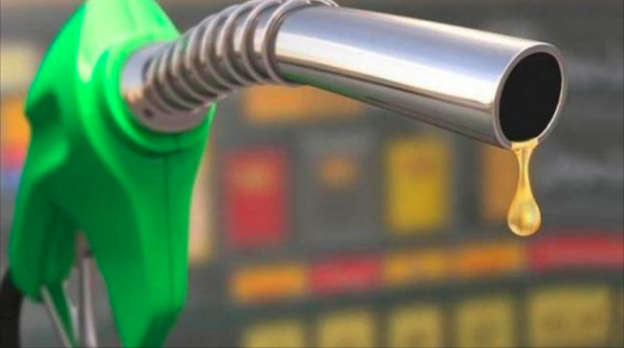
THE Nigerian National Petroleum Corporation’s recent disclosure that 2.25 billion litres of petrol were sold and distributed in December 2020, translating to 72.72 million litres per day, graphically exposes the thriving activities of smugglers in the nation’s petroleum industry. In comparison, 57.44 million litres were sold a month earlier. This upward trend is highly disturbing.
Industry insiders have helplessly noted that they did not expect Nigeria to consume more than 60 million litres of petrol daily. They attribute the indefensible increase to smuggling of the product to neighbouring countries because of a significant difference between petrol prices in Nigeria and the border countries. The NNPC had corroborated this claim in July 2019 when it said petrol was being smuggled out of the country to Ghana, Burkina Faso, Mali and Ivory Coast. Stakeholders pegged the price per litre in the West African markets at between N350 and N430. It currently sells for a minimum of N162 per litre in Nigeria.
In a clearer perspective, the corporation put the country’s petrol consumption level at 35 million litres daily on February 8, 2018. In June 2020, the Group Managing Director, NNPC, Mele Kyari, at an interactive session organised by the Joint Senate Committee on Petroleum Resources (Upstream and Downstream), confirmed that petrol was being smuggled out of Nigeria to neighbouring countries.
He said, “We don’t know how much petroleum products we consume daily in this country, but we know how much of the product that is taken out of the depot. This year, around 54 million litres of petroleum products are evacuated from the depot daily, but the consumption is somewhere below that. The NNPC has no knowledge of the amount of products that are transported through Nigeria’s borders to neighbouring countries. It is impossible to know; nobody declares it, and therefore as it crosses, it goes.”
Conversely, Her Majesty’s Treasury said petrol consumption in the United Kingdom declined from 24 billion litres per month in 2007 to 16.9 billion litres monthly in 2019.
Nigeria’s case reveals the country’s helplessness despite the existence of government-funded agencies to monitor the trans-border trade, including the Nigeria Customs Service, which among other duties, is tasked with tackling smuggling. The NNPC is currently the sole importer of petrol in Nigeria.
The NCS has a duty to decisively stamp out fuel smuggling, which mostly occurs through the porous and poorly manned land borders. Customs’ responsibilities go beyond the routine grandstanding over revenue collection and the amount generated into government’s coffers. Beyond this, the service ought to wholly assert itself in facilitating robust trade, commerce and industry and curbing smuggling activities. It must be up and doing in securing the borders and entrench efficient border patrol.
Petrol smuggling has irritatingly become a cash cow in Nigeria. It is time for the Customs to live up to its name and functions by frustrating the activities of smugglers. Nigeria is losing so much to the smuggling cartels; the NNPC stated that the situation is costing the country’s economy about N2 billion daily. There is an urgent situation at hand and the NNPC cannot continue majoring in minor things.
Really, it is scandalous for the country to appear helpless in such a circumstance. It amounts to institutional failure, leadership ineptness and lack of focus. The Federal Government should urgently rework its strategies and design the effective technology-driven countermeasures to curb the act. The Downstream Remote Monitoring System it initiated to check illegal activities in the downstream sector of the oil and gas industry, determine illegal petrol stations actors and provide accurate data on the industry, needs to be properly executed for profitably. Those hell-bent on sabotaging the process to continue in their illegal activities are ruthless and persistent. Thus, the Federal Government cannot fold its arms and allow the cycle to continue. It cannot claim to be unaware that during the closure of land borders, the petrol filling stations around border countries did not particularly check the trend and it should be prepared to intensify efforts towards adequately curbing the activities of the smugglers.
Kyari recently said the corporation could no longer bear the cost of subsidising petrol, which he put at between N100 billion and N120 billion monthly. In this way, the Federal Government must do everything to decisively end the reign of subsidy payment albeit favouring some insatiable subsidy profiteers. Nigeria is Africa’s top oil producer but relies heavily on importation to meet its fuel needs with its four refineries are in a state of disrepair.
But the Federal Government has no business running refineries. Its inability to effectively run the refineries largely created the loopholes being exploited by the greedy smugglers. At best, the Federal Government should create an enabling environment and offer supervisory roles for industry players. The NNPC noted that in the 12 months to June 2020, the refineries were idle, but incurred N142.07 billion in debt. Specifically, all four refineries in Port Harcourt (which has two), Warri and Kaduna recorded gross inadequacy in terms of output and performance.
The Federal Government’s proposed $1.5 billion for the rehabilitation of the Port Harcourt refinery is therefore misplaced. The state of the refinery apparently punctured the proposal: The Port Harcourt Refining Company generated a total of N10.33 billion from 2015 to 2019 and posted a loss of N229.14billion. Overall, it generated zero revenue in 2019; N683.52million in 2015; N3.37 billion in 2016; N4.82 billion in 2017 and N1.46 billion in 2018. It lost N35.81billion in 2015; N43.44 billion in 2016; N53.77 billion in 2017; N45.59 billion in 2018 and N50.53 billion in 2019. The way to go is to reform the sector, block the cesspool of corruption and associated petrol smuggling to bring Nigeria to be at par with other global oil producers recording terrific successes.
END

Be the first to comment